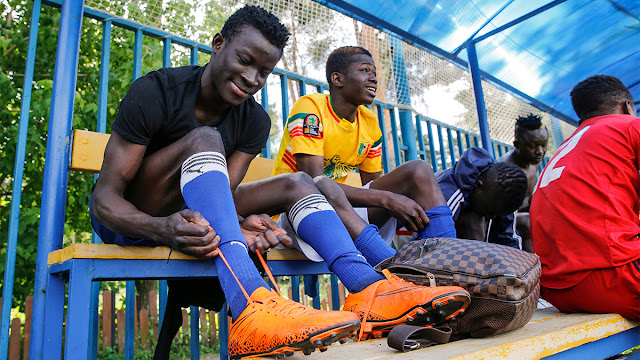Who is walking away with South Sudanese resources?
Who is walking away with South Sudanese resources?
This is not simply political satire but the truth is that it's appropriate that the South Sudanese accuse Museveni for emptying their coffers. Salva Kiirs regime spends a big part of the countries revenue to Museveni to sustain him on power militarily.
It is estimated that the war could go on to cost the country $28 billion over the next five years, as well as $53 billion in neighboring countries for refugee expenditures and spillover effects.
Sarah Thomas—writes on South Sudanese News Agency, “South Sudan is a heavily traumatized young nation with deep scars of war and the resource purse demands that adequate care for orphanages, widows, widowers and most importantly our wounded heroes and heroines”.
South Sudan economy is resource strained and on a free fall , it will keep falling as the violent conflict continues.Museveni -Kiir alliance is ferrying military arsenals day and night through Uganda Gulu –Juba road to the fierce offensives that Juba regime is carrying out in the States of Upper Nile, Unity and Jong lei .One of Kiir close militia ally Gen Johnson Olony recently mutinied going away with Government's 27 Tanks & 2 War Ships, large artilleries and other collections of armored personnel carriers.
The loss of these military hardware which are expensive to procure have adverse effects to the economy, Juba has depleted both its foreign and local currency reserves resulting to acute scarcity of the dollar currency and skyrocketing of the exchange rate in a country which has been depending on import of all sorts of commodities for the past ten years.
Already, the downturn forced the government to delay salaries of civil servants. People are working for free while Salva use the country money to pay Ugandan soldiers and procure replacement of military hardware’s which his soldiers are abandoning in the war fronts. It doesn’t matter what they try to do, the downfall must keep hammering the economy which has suffered since the outbreak of the conflict due to the fact that oil production facilities have been damaged in the fighting and some have fallen under rebel control. Oil revenues are down 75%, partially from output reductions due to the ongoing violence and as a result of the sharp drop in global prices. This has made it increasingly difficult for the government in Juba to fund their bills and pay their salaries, the large majority of which goes to the army and the police.
South Sudan is now facing a complete economic collapse, with the Juba government reportedly printing money to cover their expenses. Toby Lanzer, the top UN humanitarian official in the country, recently warned of the financial dangers of this practice, emphasizing that “printing money when there is nothing to back the value of that currency usually leads to hyperinflation.”
If South Sudanese want to end the hemorrhage on the economy, with the current scarcity of basic commodities such as staple meal of bread, the solution is reject Museveni-Kiir alliances and take the path of peaceful settlement.




Comments
Post a Comment